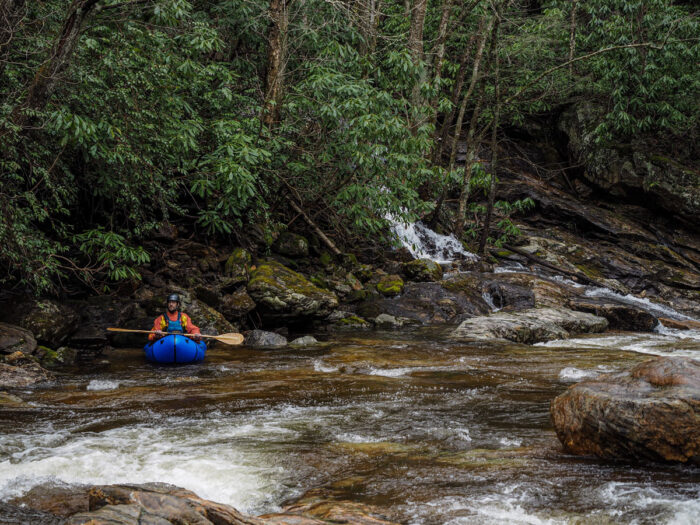Voices for clean water
Clean water is essential to every aspect of our lives—whether it’s the water we drink, the places we swim, or the streams we fish. And Southerners know it.
This winter, the Environmental Protection Agency is expected to undo the harmful Trump administration rule that removed federal Clean Water Act protections for countless crucial waterways and wetlands, opening the doors to pollution and destruction by industry, mining and development.

Even so, our waters in the South are threatened by industrial pollution and continued efforts to strip away critical clean water protections. The U.S. Supreme Court is considering a case known as Sackett v. EPA, which was brought by development interests who, along with many industrial polluters, are asking the court to overturn decades of consistently applied federal law by drastically cutting the scope of protections offered by the Clean Water Act.
To make clear the unprecedented nature of the developers’ position, SELC filed a brief with the court on behalf of more than 100 environmental groups outlining just how much of the South’s clean water and the safety of our communities are at stake with this monumental decision.
People across our region are calling for a return to federal protections that reflect the value clean water plays in all our lives. Hear from some of those people below.
Jeff Currie
Lumber Riverkeeper and member of the Lumbee Tribe
Lumberton, N.C.
“The waterways are sacred waters, along with the plants and animals in the forest and watershed. They are more than components of the ecosystem. They are our kin, and so we have a responsibility to protect them. The rivers and waterways are crucial to our culture, our history, and a part of our ceremony. Strong federal clean water protections will help to preserve the quality of water for future generations.”
Kevin Colburn
National Stewardship Director at American Whitewater
Asheville, N.C.
“I often joke that I can’t keep my kid out of the river or the river out of my kid and I shouldn’t have to worry about either. Our rivers can and should be safe and getting safer. That’s the whole point of the Clean Water Act. People are starting businesses and building lives around these rivers. Strong federal clean water protections under the Clean Water Act are key to protecting those businesses and those livelihoods. But of course, just as important as rivers where you can paddle are our upstream tributaries, wetlands, and other important waters. And what the past 50 years since the passage of the Clean Water Act has proven is that we can have both clean water and a healthy economy.”
Doug Harper
Chairman of Harper General Contractors
Greenville, S.C.
“Our entire economic structures are based on our water resources from agribusiness to tourism and outdoor activities to manufacturing and more. Everything depends on access to abundant clean water. All our water bodies large, small, isolated, or ephemeral are interconnected and vibrant. I believe that growth and economic development are not mutually exclusive from a healthy environment – they’re mutually supportive.”
Tricia Kilgore
P.E. and Director of Technology & Innovation for the Beaufort-Jasper Water & Sewer Authority
Okatie, S.C.
“As a utility, we have a relationship of reliance and protection with our area rivers, wetlands, and marshes. We depend on the Savannah River as our drinking water source. The natural treatment capacity of wetlands helps with source water protection, and wetlands provide natural protection from flooding. In turn, we protect our area’s distinctive rivers, wetlands, marshes, and oyster beds with our clean water infrastructure and treatment processes.”
Bob Perry
Senior Mitigation Strategist at Water & Land Solutions
Columbia, S.C.
“Protection of waters is less expensive today than later. If water protection efforts are not bolstered and maintained, the nation will pay a significant fiscal price in the future. In South Carolina and other Southeastern states, water drives the quality of life. Economic sustainability and environmental quality are not mutually exclusive. They go hand and hand.”
Rev. Gordon Myers
Reverend Myers with the Poor People’s Campaign
Memphis, Tenn.
“What works is when decisions are made in the open and not behind closed doors, when every citizen in every community is valued equally and when the government protects and prioritizes people and their lives over corporations and their profits. When hard decisions must be made, they need to be informed by the best science and information rather than the protection of special interests or industries.”
